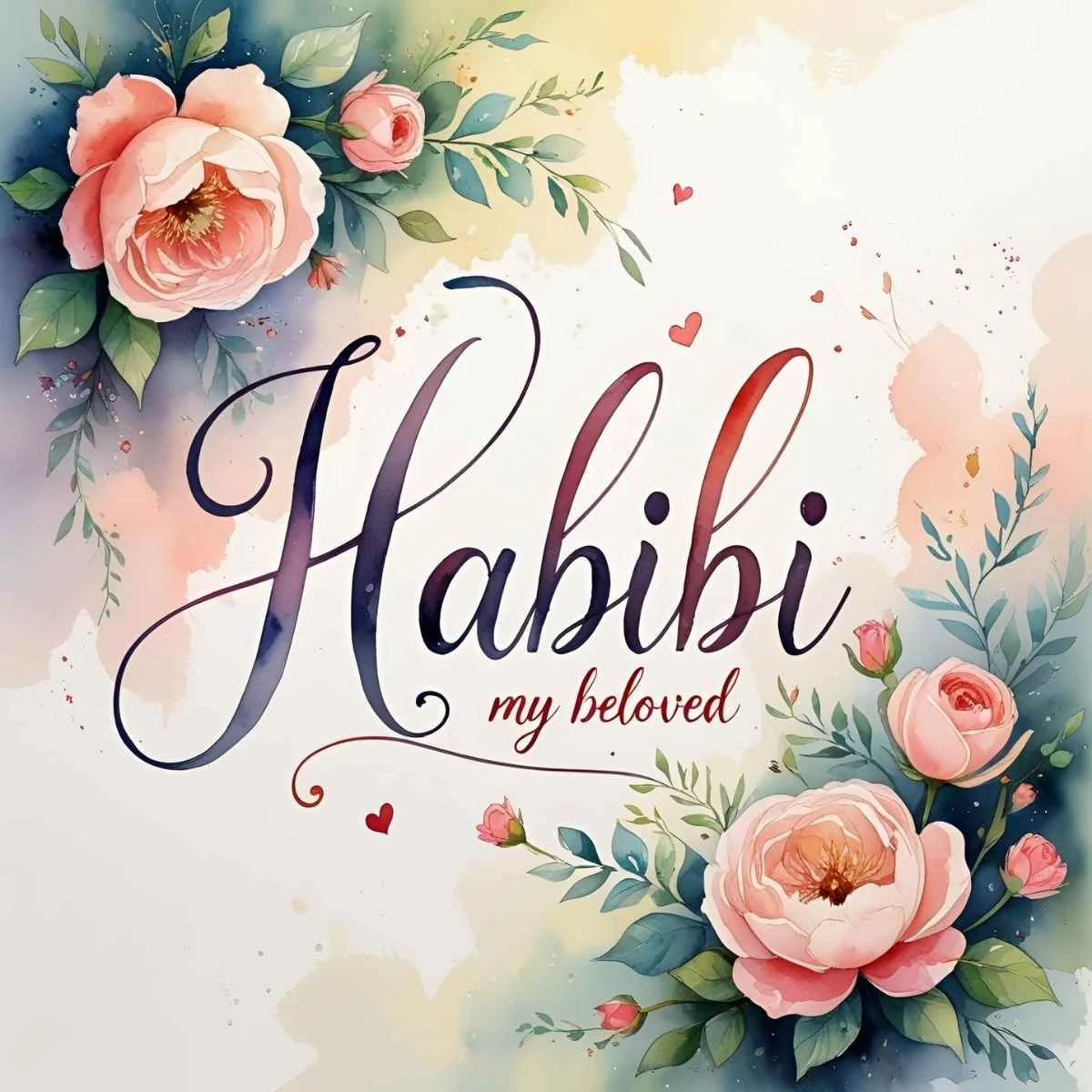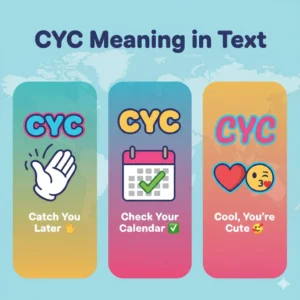The word Habibi is one of the most famous Arabic terms of endearment. Even if you don’t speak Arabic, chances are you’ve heard it in a song, movie, or maybe from a friend who grew up in the Middle East.
But while many assume it simply means “my love,” the real Habibi meaning is far richer and more layered.
This guide explores everything you need to know about “habibi”—from its linguistic origins and religious importance to its role in Arabic culture, music, and modern slang. By the end, you’ll see why this single word carries so much meaning and warmth.
What Does Habibi Mean?
In Arabic, Habibi (حَبيبي) translates to “my beloved,” “my love,” or “my dear.”
- It comes from the root word ḥubb (حب), meaning love.
- The word Habib means “beloved,” and when you add the suffix -i, it becomes “my beloved.”
Gender Variations
- Habibi (حَبيبي): Used for addressing a male.
- Habibti (حَبيبتي): Used for addressing a female.
Emotional Range
Unlike English, where “my love” is typically romantic, habibi usage in Arabic is broader. It can express:
- Romantic affection
- Parental love
- Friendly closeness
- Casual warmth
Examples:
- A husband says to his wife: “Good morning, habibti.”
- A father says to his son: “Eat your food, habibi.”
- Friends greet each other: “How are you, habibi?”
So the Habibi meaning in English is not always romantic—it depends heavily on tone and context.
Habibi Pronunciation
For English speakers, the Habibi pronunciation is:
Ha-bee-bee
Phonetic: /ħɑːˈbiː.bi/
The “H” sound comes from the throat, softer than in English.
Dialect Differences
| Region | Pronunciation Style | Example |
|---|---|---|
| Egyptian Arabic | Softer, often shortened in songs | “Ya habibi” in pop songs |
| Levantine Arabic (Lebanon, Syria, Palestine, Jordan) | Clear, affectionate | Friends greeting: “Ahlein, habibi!” |
| Gulf Arabic (Saudi, UAE, Kuwait, Qatar) | Stronger “H” sound | “Yalla, habibi” |
| North African Arabic | Slightly different accent | Used with French or Berber influence |
This makes the habibi pronunciation a reflection of regional identity.
Cultural and Linguistic Origins of Habibi
The cultural origins of habibi date back centuries.
- Arabic Poetry: In pre-Islamic and classical Arabic poetry, poets used habib and habibi to describe longing and love.
- Religious Texts: The Prophet Muhammad (peace be upon him) is called Habib Allah (Beloved of God).
- Music & Songs: “Habibi” became central to Arabic love songs. Amr Diab’s “Habibi Ya Nour El Ain” turned it into a global hit in the 1990s.
- Daily Speech: From markets in Cairo to homes in Beirut, it remains a go-to word for affection.
Common Everyday Usage of Habibi
The beauty of “habibi” lies in its versatility.
Different Contexts
| Relationship | Example | Meaning | Tone |
|---|---|---|---|
| Romantic | “I miss you, habibi.” | My love | Intimate |
| Family | “Eat, habibi.” | My dear (child/relative) | Warm, caring |
| Friends | “What’s up, habibi?” | Bro, dude, mate | Casual, friendly |
| Strangers/Polite | “Welcome, habibi.” | Dear guest | Respectful |
Thus, habibi meaning in relationships can shift from deep romance to lighthearted friendship.
Popular Variations and Related Phrases
“Habibi” rarely stands alone. It often appears in phrases that combine affection with everyday expressions.
| Phrase | Translation | Context |
|---|---|---|
| Ya Habibi | “Oh my beloved” | Common in songs and poetry |
| Yalla Habibi | “Let’s go, my dear/friend” | Motivational, casual |
| Wallah Habibi | “I swear, my dear” | To emphasize truth |
| Shukran Habibi | “Thank you, dear” | Gratitude with warmth |
| Marhaba Habibi | “Hello, my dear” | Greeting |
| Inshallah Habibi | “God willing, my dear” | Religious/hopeful |
These variations showcase habibi usage in Arabic across casual, religious, and musical contexts.
Habibi Across Languages and Cultures
In English
The Habibi meaning in English is usually “my love” or “my dear.”
In Urdu/Hindi
- Thanks to Bollywood songs and Urdu poetry, South Asians understand “habibi.”
- Often used in music videos to signal romance or bizarre Arab culture.
In Hebrew
- In Israel, “habibi” is used informally like “buddy” or “my friend.”
- It’s a loanword from Arabic but has become part of Hebrew slang.
This shows how habibi translation adapts differently depending on the culture.
Habibi in Religion and Tradition
The Habibi meaning in Islam holds deep respect.
- Habib Allah: A title of the Prophet Muhammad ﷺ meaning “Beloved of God.”
- Religious Greetings: Combining it with “Inshallah” or “Alhamdulillah” shows faith + affection.
- Christian Arabs: Also use “habibi” in liturgical songs and greetings.
Thus, Habibi cultural origins bridge both religion and daily life.
Habibi in Music and Pop Culture
“Habibi” gained international fame through Arabic music.
- Amr Diab’s “Habibi Ya Nour El Ain” (1996) – Still played worldwide.
- Shakira, DJ Khaled, and other Western artists have used “habibi” in their lyrics.
- TikTok & Instagram: Used in memes, captions, and viral dances.
This proves that habibi in music helped it become a global expression.
Misconceptions About Habibi
Despite its popularity, there are many myths about “habibi.”
- ❌ It only means lover. → ✅ It can mean friend, child, sibling.
- ❌ It’s gender-neutral. → ✅ Male = Habibi, Female = Habibti.
- ❌ It’s always serious. → ✅ Often used playfully like “bro” in English.
Understanding these clears up confusion when using it outside Arabic culture.
Extended FAQs on Habibi
What does “my habibi” mean?
It literally means “my beloved.”
Can women say habibi?
Yes, but men are usually addressed as habibi and women as habibti.
Is “habibi” romantic or friendly?
Both. Context matters. To a partner, it’s romantic; to a friend, it’s casual.
Can non-Arabs say habibi?
Yes, if respectful. Many foreigners use it in the Middle East and are warmly received.
What is Habib vs Habibi?
- Habib: Beloved (general).
- Habibi: My beloved (personal).
Comparative Table: Habibi in Dialects
| Dialect | Habibi Usage | Example |
|---|---|---|
| Egyptian Arabic | Very common in songs | “Ya habibi” in pop songs |
| Levantine Arabic | Affectionate among friends/family | “Habibi, kifak?” (How are you?) |
| Gulf Arabic | Used in casual + serious tones | “Yalla habibi, let’s go.” |
| North African Arabic | Less frequent, often mixed with French | “Salut habibi!” |
The Symbolism of Habibi
“Habibi” is not just a word—it carries cultural symbolism:
- Represents love and affection.
- Acts as a social connector across genders and ages.
- Symbolizes Arab identity in music, literature, and everyday life.
Learn Arabic and Quran Online with AlMaher Quran Academy
To truly understand words like “habibi,” learning Arabic is essential. One of the best ways is through Quranic Arabic, which deepens both language and spirituality.
AlMaher Quran Academy offers:
- Online Quran classes with qualified teachers.
- Quran recitation course for all ages.
- Quran memorization online (Hifz programs).
- Learn Quran Tafseer online with teachers from Al-Azhar University and Islamic University of Madinah.
- Tajweed for beginners to perfect pronunciation.
- Arabic language course online for mastering cultural expressions.
👉 Book a Free Trial Class Today to connect with expert tutors and experience Quran learning online with tajweed.
Conclusion
The Habibi meaning is much deeper than just “my love.” It is a universal expression of affection, warmth, and cultural identity across the Arab world. From romantic relationships to friendship and even religious devotion, this word reflects the richness of Arabic language and tradition.
Whether you hear it in a song, read it in poetry, or use it in conversation, “habibi” reminds us that some words transcend borders—carrying with them centuries of history, love, and connection.



